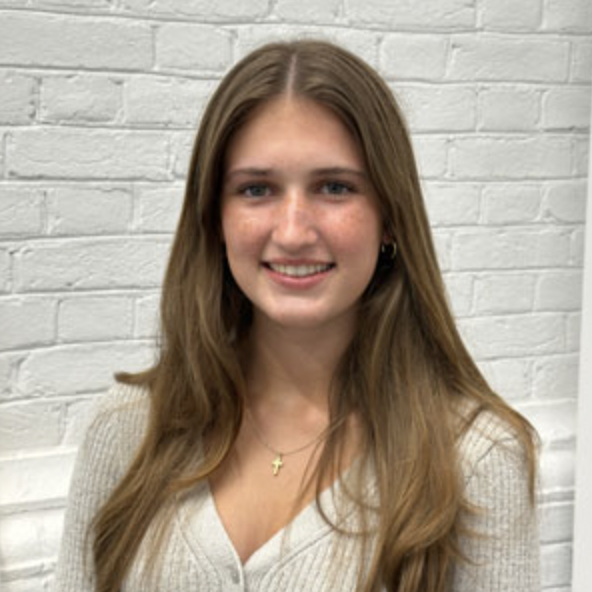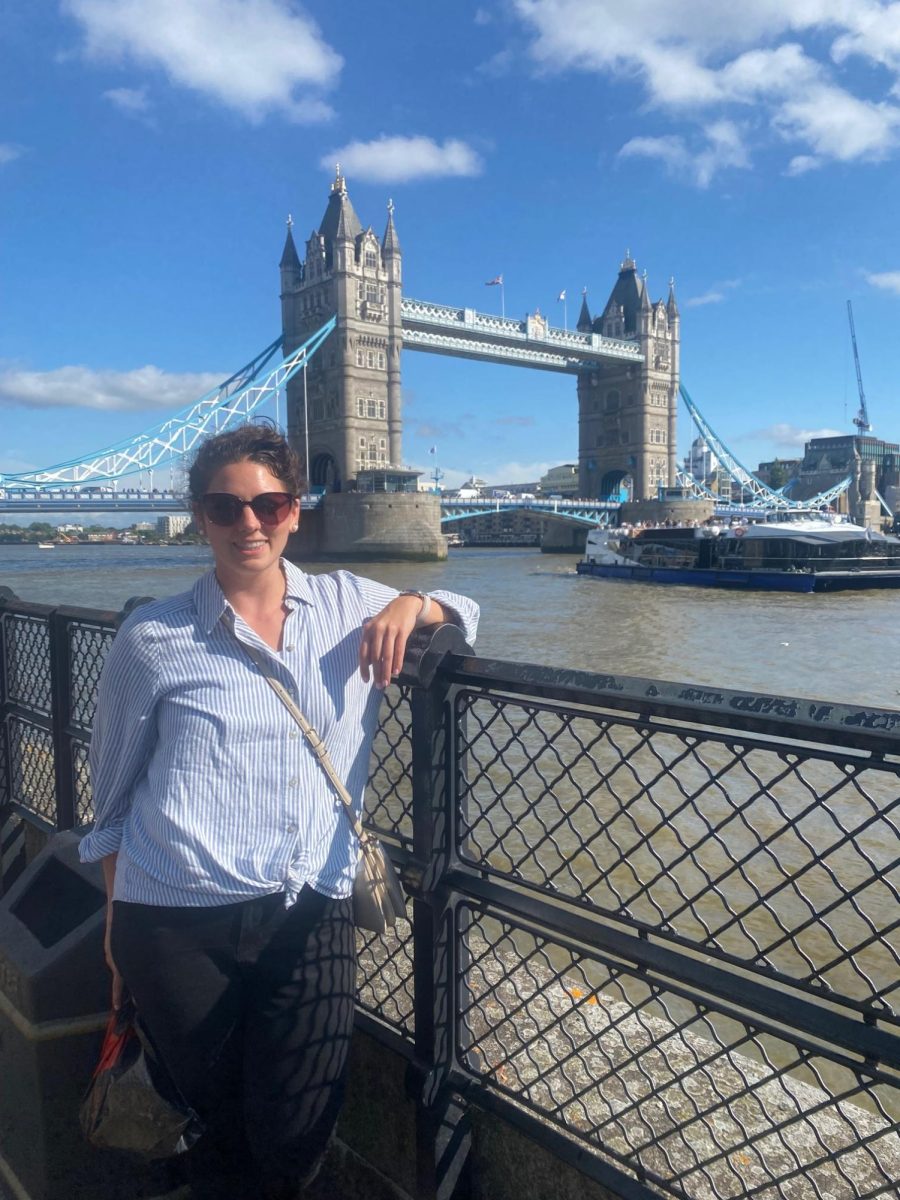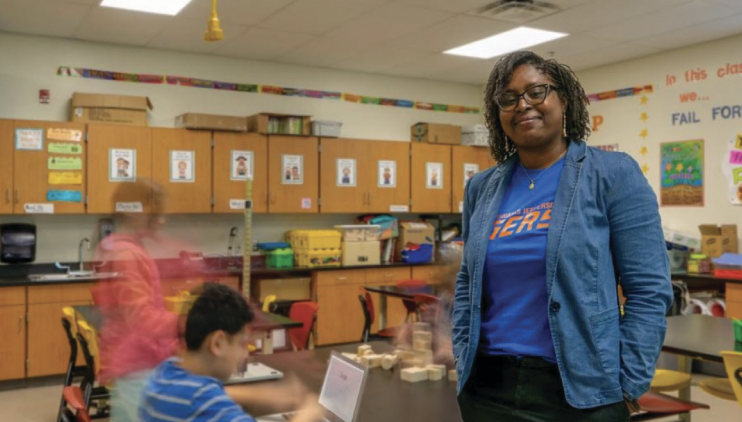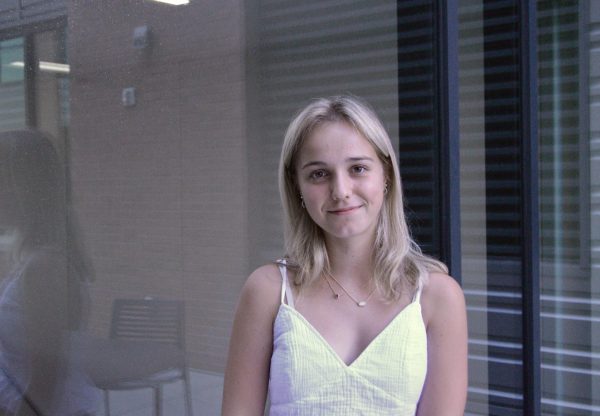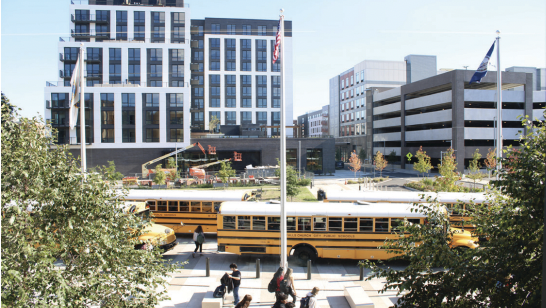
I met Mayor Letty Hardi in the front lobby of Meridian. I’d been gazing out at the West End construction area before she arrived. We shook hands, and she asked me to call her Letty.
When Hardi attended a City Council meeting before she first ran–and won in 2016–she noticed the absence of others from her cohort. A first generation immigrant and the first in her family to graduate from college, Hardi’s three biggest priorities are education, affordable housing and small businesses. Hardi began her tenure as Mayor at the beginning of this year, and her mission is to “leave this community better than [she] found it.”
Hardi defines “better” as more equitable, welcoming and with a greater commitment to “live up to our values.” As Mayor, she strives to align the government’s policies and actions with our values.
Reflecting on her first nine months as Mayor, Hardi is most proud of then budget––which she said is a vital action the council takes––because it enabled the locality to increase services and lower taxes. The budget allows the city to fund the “things you care about,” like the school system and affordable housing program.
“Your budget is the best manifestation of your values,” Hardi said.
A major reason Falls Church City was able to lower taxes and increase revenue was by expanding development. Broad and Washington, West End (which is adjacent to MHS), and Founder’s Row II are mixed use development projects all under construction. While the simultaneous construction of three major projects is rare, these developments reflect one of the ways FCC is strengthening its revenue base. Another way is by invigorating small businesses––businesses bring in revenue through the sales tax. Revenue is vital to ensuring our local government can fund programs and pay city employees, like teachers.
With a view of the West End project from the library, we shifted to discuss the often multi-year process
by which the City Council approves mixed use development projects like the West End.
“Everyone brings to the table different values.”
Hardi first considers how much revenue in taxes the development will produce. Then she evaluates how it will help FCC increase the number of affordable housing units, improve transportation, or what amenities it will provide. Alongside the City Council, she considers costs, like short-term disruptions due to construction or the impact on the surrounding neighborhood.
For instance, Hardi understands how the West End project has changed the atmosphere around the secondary campus, but said the positives outweigh the disruptions.
“I understand that changing that corner of Haycock and Route Seven is a really big change, […] but it’s largely there because it helps offset the cost of the high school.”
Furthermore, the project also helps augment housing availability, including affordable housing, which
is necessary for supporting small businesses––businesses need customers and workers.
Another frequent concern Hardi addressed is whether more large-scale development projects will overpopulate the city and Meridian with students. However, according to data from a School Board analysis on the number of students per dwelling unit
in the fiscal year 2024, only nine percent of students come from mixed-use development buildings, and that percentage has held between seven and nine percent since 2015, Furthermore, she emphasized that Meridian was built to accommodate 1500
students; so, compared to the about 900 students currently enrolled at Meridian, there is plenty of room for
growth.
But, as citizens watch Falls Church City grow, a question lingers: are we losing the Little City?
Hardi believes the heart of the Little City is “in the people and the community.” The city looks different than it did 10, 20 years ago–but to Hardi–it’s for the better. Hardi said new buildings and people are additive. They make the city more “welcoming, inclusive, and vibrant.”
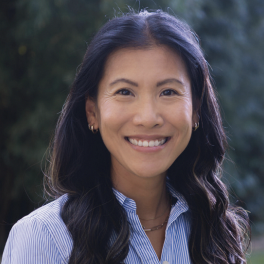
“I love how vibrant it is now. On a beautiful Friday night, you’re gonna see people on sidewalks, riding bikes, eating outdoors, getting ice cream; there might be an impromptu concert. There is just so much life, with the change in the city.”
The city has grown upwards. Seventy percent of residents live within a 10-minute walk of a grocery store. And restaurants, parks, and community gatherings are within walking distance as well. The city is increasing sidewalk and bike lane coverage to make transportation more accessible and environmentally friendly.
“Ninety percent of our greenhouse gas emissions come from buildings and transportation,” Hardi said. She believes transportation is the “biggest opportunity” to support citizens as they lower their emissions.
Not only that, but reducing reliance on cars draws citizens to interact with their neighbors, and promotes health and equity – not everyone can drive or afford a car. “The way we interact with the world has to do with our built environment.”
Hardi hopes the city continues to enhance its walkability and accessibility. Along with that, she envisions a Falls Church with generational diversity and improved affordable housing. Falls Church prides itself on inclusiveness,
but currently we are the least racially and economically diverse community in Northern VA. She hopes to see “serious progress on affordable and diverse housing.”
Fundamentally, Hardi is leading a community whose actions match their values.



